 |
 |
 |
| Home | Essays |
Wikipedia | Resources | Portals & Archives |
|
Philosophy |
|
||||||||||||
|
Meher Baba on Philosophy |
|
"Through the ages, the human mind has been profoundly restless in its search for final explanations for first things. The history of these endeavors to grasp first things through the intellect is a tale of recurrent failures. The redeeming feature of these great efforts is that instead of being disheartened by the confessed failures of past thinkers, others are inspired to make fresh attempts. All these philosophical explanations are creations of the mind that has never succeeded in passing beyond itself. Thus they are confessed though inspiring failures; nonetheless each such failure is a partial contribution to knowledge of the Beyond." "Much of what is included under philosophy is a result of trying to develop an intellectual grasp of the ultimate nature of life and the universe. The purely intellectual grasp of Divine Truths remains feeble, incomplete and indecisive owing to the limitations of the experience which may be available as the foundation of the structures of speculation. The philosophical meditation of free and unaided thought does not lead to conclusive results. It often leads to diverse conflicting systems or views, but philosophical meditation is not without value. Besides leading the aspirant to a certain extent in the realm of knowledge, it gives him an intellectual discipline which enables him to receive and grasp Divine Truths when he happens to come upon them through those who know. "The more fruitful mode of general meditation consists in studying the revealed Truths concerning life and the universe. This mode of understanding and assimilating the Divine Truths can start from hearing or reading expositions of the Divine Truth which have their source in the Masters of Wisdom. The discourses of living Perfect Masters or the writings of the Perfect Masters of the past are a suitable object for this mode of general meditation, because the assimilation of Divine Truths, revealed through them, enables the aspirant to bring his life into line with God's purpose in the universe." |
Philosophy and the Path of Knowledge by Christopher Ott |
|
Traditionally, philosophy emphasizes novelty and rewards thinkers on the basis of their inventiveness. Famous thinkers gain their reputations for brilliance by concocting inspiring systems, imaginative metaphysical entities, unexpected ways to undermine older systems, and (more recently) for their creative assemblage of impressive logic chains leading to startling new conclusions. The central axis around which all these kinds of inventiveness orbit is inevitably the ego or personality of the philosopher. In pointing out this problem, the 9th century Indian philosopher Adi Shankara once quipped that such thinkers are like "bulls with no horns and no tail," having no place to start and no clear direction where to go. To illustrate his point Shankara pointed out that if such methods were as reliable as their proponents asserted, then what would account for the fact that each logician arrives at a different conclusion? We would expect them to agree. The path of knowledge as it pertains to spiritual life hardly has much resemblance to what we ordinarily refer to as philosophy. First, the path of knowledge begins with certain assumptions; key among them is that reality exists to be revealed. There is no quarreling in the path of knowledge over whether there is an Absolute Truth as we find in our post-modern world. Second, it is taken for granted by the seeker on the path that certain scriptures (written by whom we call perfect masters) hold keys to this absolute truth and that these scriptures are true - but their meaning must be revealed. For Adi Shankara such scriptures were comprised by specific Hindu Vedas referred to as Sruti. In his commentaries on these, Shankara set for himself the task of finding an interpretation of these scriptures that was not self-contradictory, yet could account for all of it. For the purpose of my own writing, I choose to accept as axiomatic that certain works by Meher Baba, such as God Speaks, are Sruti in a modern form written for our age. Thus all that I wrote is really only commentaries on Baba's words, meant to help me and others to make clear sense of them. Sometimes I succeed. Sometimes I fail. But the criterion for success or failure I have made clear for myself. |
A brief history of post-modern western philosophy up until Meher Baba by Christopher Ott |
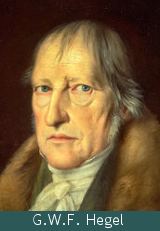 Oddly, right before Meher Baba's birth the Western world was closer to an understanding similar to that in God Speaks than it is today. But it had reached an impasse - that of mind idealism, the idea that the human intellect with all its thoughts is the end game of Creation. This was about the mid to late 19th century. It included German Idealism, though it had its English counterpart. It coincided roughly with the period referred to as the Romantic Era. Oddly, right before Meher Baba's birth the Western world was closer to an understanding similar to that in God Speaks than it is today. But it had reached an impasse - that of mind idealism, the idea that the human intellect with all its thoughts is the end game of Creation. This was about the mid to late 19th century. It included German Idealism, though it had its English counterpart. It coincided roughly with the period referred to as the Romantic Era.At the same time, in America, there were two important movements in philosophy that were very much also on the vanguard, although many today don't fully realize this. These included first the Massachusetts transcendentalists, and later the pragmatists, who had begun to forge a brilliant post-evolutionary new mode of looking at reality in terms of processes, as opposed to metaphysical substances such as matter. These ideas closely anticipated Meher Baba's theme of evolving consciousness expressed in God Speaks less than a century later. 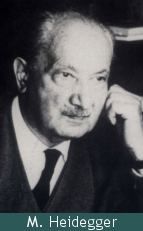 In Germany, Hegel (1770-1831) and later Heidegger (1889-1996) also had ideas strongly foreshadowing God Speaks. Hegel described the end of evolution as the point where "Spirit meets Spirit" and Heidegger wrote of how, at the terminus of biological evolution, the full sense of existing that humans experience, Dasein, emerges at that auspicious moment when man suddenly finds himself against the backdrop of the world he evolved in - almost exactly paralleling the account of the rise of consciousness found in God Speaks. 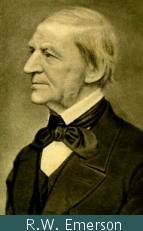 But many of these thinkers are today considered less than relevant to where we think we have arrived, i.e. gross materialism - the belief in an inert invisible substance that forms patterns by accidents and gives rise to consciousness in ways that no one has yet been able to ascertain. The American transcendentalists and pragmatists are not even taught as philosophers in western academic settings today, but as poets and romantics. They are relegated to literature rather than philosophy, and it is a shame. In the turn of the 20th century, the collective social movement began to overlap and squash these inroads of discovery. The new movement, which was to become uncompromisingly materialistic, started as a kind of reactionary backlash to 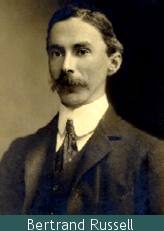 failures in western idealism, and this shift toward matter as the fundamental backbone of reality became a full-blown movement at Cambridge University under the stewardship of the charismatic philosopher Bertrand Russell. failures in western idealism, and this shift toward matter as the fundamental backbone of reality became a full-blown movement at Cambridge University under the stewardship of the charismatic philosopher Bertrand Russell.From his post at Cambridge, Russell spearheaded a movement by bringing sympathetic friends, sometimes referred to as Russell's apostles, into Cambridge under his wing, and ushered in logical positivism - the view that all arguments can be settled by logic and that all questions regarding matter's dominance as the fundamental reality are actually nothing more than semantical mistakes. This new thinking achieved its climax when Russell brought Ludwig Josef Johann Wittgenstein to Cambridge. Wittgenstein, an anti-Semitic German Jew, had written a paper in the trenches of the First World War called The Tractatus. It was a logical manifesto about all of life, and Russell allowed him to submit it as his doctoral dissertation, avoiding any formal training in the subtleties of philosophy, which the club of apostles now saw as confusing nonsense best avoided to keep a clear logical head. 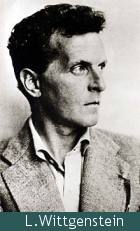 Wittgenstein was only at Cambridge for two years before Russell had to fire him for punching a student in the face for asking him a question. But while there, Wittgenstein began to reject his own earlier logical manifesto, and wrote another book called Philosophical Investigations. This shocking debunking of logical positivism (positivism being the idea that logic alone could solve all problems) was published posthumously in 1953, just two years before the publication of God Speaks. It painted numerous logical ambiguities found in common speech in order to prove that logic could not really be used to clarify intention or truth. It marked the end of logical positivism and the true beginning of post-modern nihilism - the view that truth and purpose do not truly exist independent of human imagination. Wittgenstein (partly rightly, partly out of his own inner desperation) saw that language and logic was really nonsense as it amounted to nothing more than what he came to call "language games" played by people to entertain themselves. When Wittgenstein was told that he was dying of an incurable disease, his only reply was, "Good." Wittgenstein was only at Cambridge for two years before Russell had to fire him for punching a student in the face for asking him a question. But while there, Wittgenstein began to reject his own earlier logical manifesto, and wrote another book called Philosophical Investigations. This shocking debunking of logical positivism (positivism being the idea that logic alone could solve all problems) was published posthumously in 1953, just two years before the publication of God Speaks. It painted numerous logical ambiguities found in common speech in order to prove that logic could not really be used to clarify intention or truth. It marked the end of logical positivism and the true beginning of post-modern nihilism - the view that truth and purpose do not truly exist independent of human imagination. Wittgenstein (partly rightly, partly out of his own inner desperation) saw that language and logic was really nonsense as it amounted to nothing more than what he came to call "language games" played by people to entertain themselves. When Wittgenstein was told that he was dying of an incurable disease, his only reply was, "Good."The conclusion that was quickly drawn from Wittgenstein's 1953 book was that knowledge was not a genuine possibility, but only a game for people to play, and that it was within the scope of reason, given the impotence of reason and the absence of anything rational to take its place, for anyone to make up anything they liked as their rightful pastime. So, it followed, a superstition had as much validity in its contextual game as a so-called statement of fact.  This new school of thought, known as analytic philosophy, now dominates the English speaking and Japanese world and strongly influences the Continental one (French, German, Greek, etc.). It is entirely cynical and technical. Today, formal logic and metalogic are emphasized within the prestigious philosophy schools, and the trend has drifted away from giving students a strong basic education in pre-post-modern philosophy as a general waste of time and a fragmentation of reasoning. The students are selected on the basis of scores in mathematics rather than an aptitude for verbal talent or introspection, in the belief that logic should be performed in isolation from vain or sentimental intellectual curiosity. This new school of thought, known as analytic philosophy, now dominates the English speaking and Japanese world and strongly influences the Continental one (French, German, Greek, etc.). It is entirely cynical and technical. Today, formal logic and metalogic are emphasized within the prestigious philosophy schools, and the trend has drifted away from giving students a strong basic education in pre-post-modern philosophy as a general waste of time and a fragmentation of reasoning. The students are selected on the basis of scores in mathematics rather than an aptitude for verbal talent or introspection, in the belief that logic should be performed in isolation from vain or sentimental intellectual curiosity.What is ironic is that while God and spirit and perception have come to be seen as "language games," logic and a fanatical faith in material substance as the underlying existence are held to with unexamined fervor, in-spite of an absolute admitted absence of any arguments for their supremacy. For, there is no argument for either logic or matter as fundamental. They are taken on faith - as axioms.  In fact, if an outsider were to look upon our philosophers today, it would appear to them that they had, out of absolute perdition, simply placed their intellectual services in the hands of corporate and military grant sponsors. Without argument, but simply by posture and fanaticism, contemporary philosophers, especially in the English speaking world, defend materialism with their only apparent intention being to gird the public's faith that the car they bought is made of something fundamentally real and that nothing more real exists or could exist. What a boon for sales. What a death for the world. It is thus only logical that young boys ought to want to give their lives in pursuit of the oil to fill it. And finally the craft of logic is put to use at Guantanamo Bay by writing "valid and sound arguments" from definition of words for why one abuse after another is not, by definition, torture. In fact, if an outsider were to look upon our philosophers today, it would appear to them that they had, out of absolute perdition, simply placed their intellectual services in the hands of corporate and military grant sponsors. Without argument, but simply by posture and fanaticism, contemporary philosophers, especially in the English speaking world, defend materialism with their only apparent intention being to gird the public's faith that the car they bought is made of something fundamentally real and that nothing more real exists or could exist. What a boon for sales. What a death for the world. It is thus only logical that young boys ought to want to give their lives in pursuit of the oil to fill it. And finally the craft of logic is put to use at Guantanamo Bay by writing "valid and sound arguments" from definition of words for why one abuse after another is not, by definition, torture.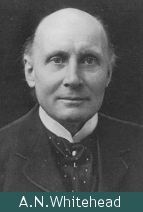 Another ironic aside is that Alfred Whitehead, whose tentative beginnings in process theology (the idea that consciousness evolves out of God's Existence) were ignored by modern philosophical gurus, had been Bertrand Russell's teacher as well as his partner on the famous logical treatise Principia Mathematica. In other words, Whitehead, one of the good guys, was no logical lightweight by any means. Yet he is regarded today only for the logical partnership with Russell, and even then as the second name, and not for his process theory that anticipates Meher Baba's God Speaks. So, now for the point. Meher Baba came at a very critical moment in history of thought. It was a moment when man finally had the intellectual tools necessary for a great forward movement, but was not yet willing to make that leap from egoism to God. 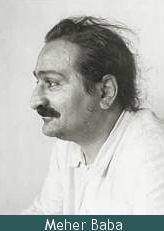 Thus, Baba does not really bring all that striking a revelation even in God Speaks. Rather what Baba brings is affirmation of the direction that was overlooked at the moment that man was about to hold the power to destroy himself in his hands. Thus, Baba does not really bring all that striking a revelation even in God Speaks. Rather what Baba brings is affirmation of the direction that was overlooked at the moment that man was about to hold the power to destroy himself in his hands.When God Speaks appeared in 1955 the world was more than prepared to receive it. Its best intellectuals had more than enough resources to encounter and penetrate its significance and receive its treasure. But up to now they have chosen not to do so, for something else must first stir. The issue never really was with the intellectual matters that Baba clarified for us, but with man's unwillingness to receive them. |